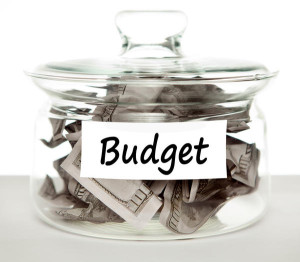 In my recent post about Financial Leadership, I stated that many leaders find their financial responsibilities at home continually failing to reach the top of their priority list. Other things seem more urgent, more interesting, or just easier. However, finances are an area that a leader in the home simply cannot ignore.
In my recent post about Financial Leadership, I stated that many leaders find their financial responsibilities at home continually failing to reach the top of their priority list. Other things seem more urgent, more interesting, or just easier. However, finances are an area that a leader in the home simply cannot ignore.
The foundation of financial responsibility, whether in an organization or in a home, is a Budget. Much like other areas of leadership, creating a budget is a proactive, forward looking activity. Simply reacting to financial needs and decisions as they come rather than planning and providing vision is, by definition, not leadership. Most financial obligations are predictable, and even financial surprises can be anticipated and prepared for.
There are many methods and tools for budgeting. With each, the objective is to decide, in advance, how the family’s money will be spent. Beyond the basic food, shelter, and clothing, it also requires determining what is (or what should be) important to the family, and often times prioritizing those discretionary items. My goal here is not to provide a “how to” lesson or to give financial advice, but rather to encourage you who strive to be leaders to take this basic step if you haven’t already. Having a carefully prepared budget provides the justification to say “no” to discretionary spending that cannot be supported by the current income, and it also makes it easier to say “yes” when the family wants something that is within its means and consistent with its values.
When my wife became pregnant with our first child, our desire was for her to quit her job at NASA and be a stay-at-home mom. So to make sure we could live on my salary alone, we deposited her paychecks directly into savings and began tracking every penny that we spent and recording each individual expenditure into a budget category. After proving to ourselves that we could do that, it became a habit…one that I continue 18 years later. At one point, I started to feel a little overbearing having my wife tell me everything she spent, so I suggested to her that we budget $100-200 per month for her to spend as she wanted, without recording or tracking or accountability to me. Amazingly, she declined, saying that she had no secrets and liked being able to look back and see a complete picture of what we spent. (Yes guys, I know. I’m blessed!)
 To many, the word “budget” is much like the word, “diet”, causing a visceral reaction to implied restraint. If I diet I have to eat less, and if I budget I have to spend less. But neither word inherently requires constriction, but rather adherence to a plan. They are processes of deciding in advance the parameters that will determine what will and will not be eaten and what will and will not be purchased. Budgeting can help you to spend with confidence and ensure that the money that is available goes to the right places. It also gives a warning before needs go unmet.
To many, the word “budget” is much like the word, “diet”, causing a visceral reaction to implied restraint. If I diet I have to eat less, and if I budget I have to spend less. But neither word inherently requires constriction, but rather adherence to a plan. They are processes of deciding in advance the parameters that will determine what will and will not be eaten and what will and will not be purchased. Budgeting can help you to spend with confidence and ensure that the money that is available goes to the right places. It also gives a warning before needs go unmet.
In order to meet long-term needs and unforeseen expenses, it is important to include Saving and Investing in your budget. We’ll talk about that in my next post.
Photo credit: Tax Credits / Foter / CC BY
Photo credit: SalFalko / Foter / CC BY-NC
Photo credit: Alan Cleaver / Foter / CC BY
Photo credit: LendingMemo / Foter / CC BY




Please note: I reserve the right to delete comments that are offensive or off-topic.